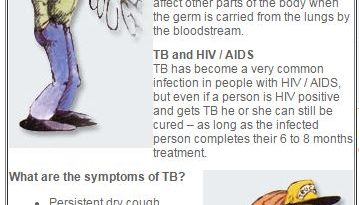How does hospital cover for seniors work?
As you grow older in years, you will notice that your health begins to deteriorate. It is important to take care of yourself in older years and so should consider taking out hospital cover if you do not already have it. Hospital cover for seniors is essential in South Africa, due to the cost of healthcare without a medical aid.
Hospital cover offers an affordable medical aid option for senior citizens, and outlined below is helpful information for those who are interested in taking out hospital cover in their older years or for their elderly parents.
Age limit
Unlike some other financial products, hospital cover and medical aids do not set an age limit on those who want to apply. You can join a medical aid or hospital cover at any age but you will most likely incur late joiner fees for joining over the age of thirty-five.
The fact that there is no age limit means that you can sign up even if you are considered to be a ‘senior citizen’ or have reached retirement age. You will have to pay a higher monthly premium due to starting late, but this is not much more than what the main member would normally pay. The late joiner’s fee is discussed below in more detail.
Late joiner penalty
As mentioned above, there is no age limit on taking out hospital cover or joining a medical aid, but you will incur a late joiner penalty. This fee can vary from a small percentage of your monthly premium to almost the entire amount, as much as 90 percent.
You will not be able to avoid the late joiner penalty if you start your hospital cover or medical aid plan later in life, but there are certain factors that may contribute to lowering the amount. One example is whether or not you have an income or if you are relying on governments grants to sustain yourself. Be sure to ask your provider for all the details on how much you will need to pay for this penalty.
Waiting periods for pre-existing illnesses
A waiting period of six to twelve months applies to pre-existing illnesses, but senior citizens do not have to worry about their current health status or past medical history when joining a medical aid. A medical examination is not compulsory but can be helpful.
During the waiting period, you will still have to make monthly contributions, but you will be unable to claim for any consultations, tests or treatments related to the pre-existing condition. Once this period is up, you will be able to enjoy full cover for your ailments. You should look into having a full medical physical examination before applying for hospital cover, so you are able to prepare ahead of time and find out if you have any pre-existing illnesses.
Previous medical aid
If you have previously been the main member or a member of a medical aid, you may be able to soften the blow of the late joiner fees. You will need to provide proof to the medical aid provider that you have previously been a member of a medical aid scheme or hospital plan.
The duration of your previous medical aid or hospital cover, as well as the length of time between your previous and your chosen future cover, will both impact the final amount you pay for late joiners’ fees. If you have been off of a medical aid for only 90 days or have moved from one scheme to another, you will not be held liable for a late joiner’s fee provided you were not paying this on your previous scheme.
Consider your budget
As a pensioner or senior citizen, you are most likely on a tight budget which is why you should choose a hospital plan over a comprehensive medical aid. This is necessary if you want to avoid languishing in a government hospital if you are injured or fall seriously ill.
Hospital plans for seniors are not more expensive, nor are they cheaper than normal hospital plans. This means that you will be paying the same amount as every other main member, which can be highly affordable for those on a tight budget. In addition to hospital cover, many hospital plans offer chronic medication cover which is essential for older people who suffer from more chronic conditions than younger people.
Don’t forget gap cover
You may find that your hospital plan does not cover the full extent of your hospitalisation costs, but as a pensioner, a hospital cash back plan is not an option. You will need to look into gap cover in order to cover all of your expenses. Look for the best hospital plan on offer, which should offer 150% up to 300% of the usual NHRPL, ensuring that you are covered by gap cover should the fees exceed this amount.




